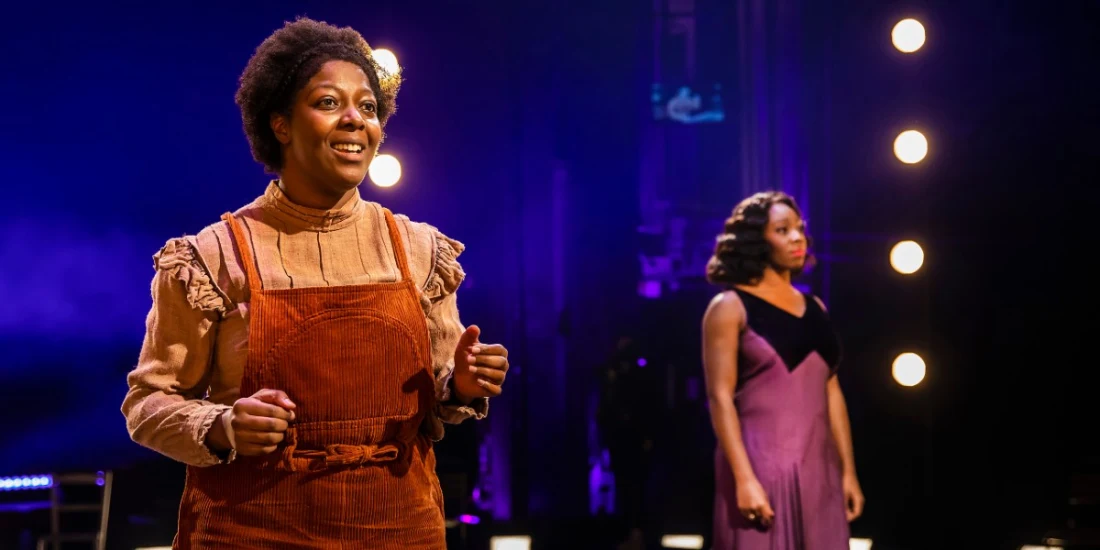‘The Color Purple’ holds a subdued power in Curve Leicester production
The Color Purple has been one of my lifelines in the last year. The inspiring message of discovering your own power to make it through hard times feels relatable and helpful during these seemingly endless days of lockdown.
The experience of seeing the show, which features a rousing, gospel-infused score from Brenda Russell, Allee Willis, and Stephen Bray, in the theatre can feel akin to going to church. When I saw the original Broadway production on tour and the stripped down John Doyle-directed production that began at the Menier Chocolate Factory and transferred to Broadway, where it turned Cynthia Erivo into a star, call and response and standing ovations happened throughout each performance.
That energy and theatrical magic is slightly lost in Curve Leicester's filmed production. While the show was initially planned as part of the onstage season, the lineup went virtual with the continued Covid-19 lockdown, and the sparsely staged production has been filmed and streamed. The show has also been in the news lately with the recently concluded tribunal over the original actress who was cast in the central role of Celie and fired after homophobic social media posts surfaced. While the actor claimed that she was discriminated against based on her religious beliefs, the tribunal ruled in favor of the theater.
The irony of the case was the show centers on what is, by all accounts, a love relationship between two women: Celie and Shug Avery, an affection that is highlighted even further in this production, particularly in the characters' duet "What About Love." While social distancing seems to be observed for the most part, the number is edited with fading closeups of Shug and Celie overlaying the footage of the two singing, almost as if they're in a music video.
Even though it's called a "concert production," the staging and costuming feels complete, and definitely share some DNA with the spare Doyle revival. The circular stage omits the need for the audience, and the chairs surrounding the performing arena, where actors will often sit when they're "offstage," feels representative of the audience (and also the seats that hang from the wall in the aforementioned revival).
The standout performances come mainly from the supporting cast. Danielle Flamanya's Nettie, Celie's sister who becomes a missionary in Africa, is clairvoyant and leaves an impression in her short-time onstage. Anelisa Lamola steals the opening as the church soloist, and I found myself missing her energy and her voice as the show went on. Simon Anthony Rhoden's Harpo is jubilant and his energy is infectious, even though the screen.
The entire production is well-sung, and T'Shan Williams and Carly Mercedes Dyer share a nice chemistry as Celie and Shug. Dyer's performance of "Push the Button" is another highlight. Williams's Celie is raw and a great foil for the characters around her, but she hardly feels central in this telling and whether that's a function of Tinuke Craig's direction or the performance is hard to tell.
Either way, it's an approach that works, as it becomes even easier for the viewer to see themselves in Celie, letting the world abuse her before she takes a rousing stand declaring "I'm Here." We're all here, after all, letting the world spin out of control with little within our power. But if we take anything away from The Color Purple, it's to believe we have everything inside to live a bountiful life.
The Color Purple is streaming with Curve Leicester in association with Birmingham Hippodrome through 16 March.
Photo credit: T'Shan Williams and Carly Mercedes Dyer in The Color Purple (Photo by Pamela Raith)
Originally published on
